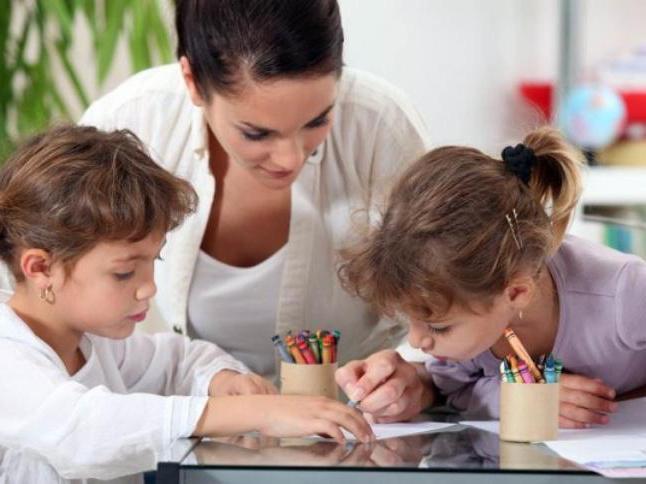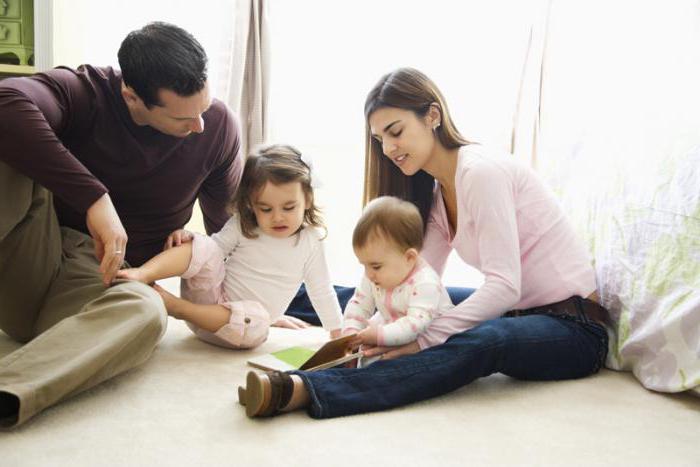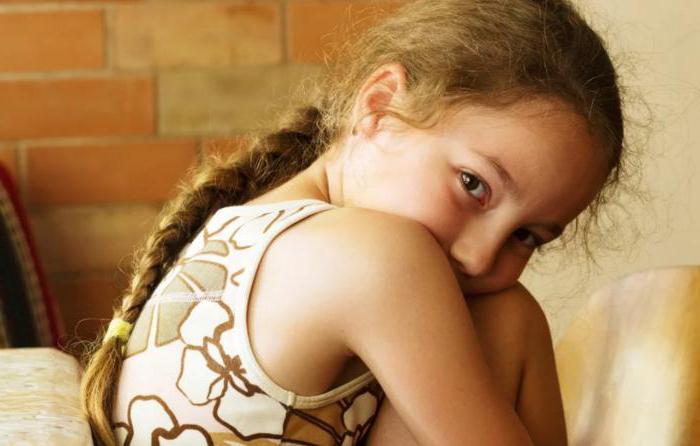Family is the basic value of any person. All its members are firmly related to multiple commitments and promises, all this makes a family not only the source of satisfaction of various needs, but also a peculiar voice of conscience to which it is necessary to listen in any situation. This cell of society has even greater importance for children, because it is here that all the main faces of the growing personality are formed and honed. Types of family education play a key role in this process. Depending on them, the physical, emotional, intellectual and other aspects of the development of the child are built and filled. Today we will look at the types of family upbringing and their characteristics, as well as discuss errors that can lead to fatal consequences.
Structure and description of the family in terms of psychology
Modern psychologists and teachers pay great importance to raising a child in the family. This topic was worried about the minds of experts in ancient times and today has accumulated a rather extensive base that allows you to classify the types of family relations and family education. However, first of all, a psychologist or a psychiatrist working with a child conducts a family analysis. Already on its results, it is possible to work in identifying types of family education in a specific cell of society, as well as to issue a number of recommendations.
The most detailed analysis scheme belongs to Persechia Persian. It enjoys many specialists, as it gives the most complete picture of the types of family and family education styles. So, personally proposes to carry out analysis according to the following characteristics:
- Family structure. Here it is necessary to take into account such factors as a full-fledged family, incomplete, as well as options with stepfather either stepmother.
- Functional features. This characteristic includes many nuances. For example, how harmonious family is. Indeed, in case of detection of disharmony, non-compliance with the interests and dissatisfaction of all members of this cell of society leading to multiple issues will be observed. At this point, experts always work as deep as much as possible.
- Parents partnership.
- The level of conflict and requests for the risk of divorce.
- Evaluation of emotional relations between family members.
After living in a single picture, the indicators for all listed items, an experienced specialist will be able to determine the type of family and family upbringing. And it should be borne in mind that today psychologists and teachers use different classification based on the works of certain authors. Most modern specialists refer to the typology created by Diana Bumrind in the middle of the twentieth century. We will talk about her a little later.
Family classification
The diagnosis of the type of family education is impossible without determining the family option in which the child grows. Modern science highlights three types:
- traditional family;
- child-centered;
- sophisticated.
In this typology, the traditional family implies the formation of a clear vertical authority. Children are raised by respect for the older generation and submission to the requirements. In a similar family, the child quickly learns to fit into the proposed conditions and clearly understands its place in the established structure. However, this deprives the adhent personality of flexibility and initiative, which further affects the construction of its own family relations.
Children's family is focused on the happiness of his child. Parents do everything so that the beloved child experienced only positive emotions. The interaction in the family is carried out from the bottom up, that is, pushing away from the desires, moods and needs of the child. Usually, such a relationship significantly raises self-esteem to a small person, but deprives him of the ability to contact with other people in society. Such children are very hard to take the adaptation period at school, they constantly conflict with peers and teachers, and also perceive the world around the world in black tones.

The basis of the married family is confidence. Here, instead of a vertical, the horizontal of interaction is built, where the interests of all family members are always taken into account. Moreover, the child receives a greater number of rights with each studied stage. In such an environment, children grow harmoniously developed, confident in their forces, independent and emotionally stable. However, despite the high adaptability, a child from a marital family is poorly adaptable to conditions requiring unquestioned subordination. He will always be uncomfortable to fit into the vertical authority, which can significantly slow down his career growth in adult and independent life.
Classification of family education types
American on the origin of Diana Bumrind devoted his family psychology all his life. She managed to monitor the large number of different families and managed to allocate three styles and the type of family education. Under this wording, she understood the combination of techniques, relations and means of exposure that parents apply in daily communication with their children.
According to the observations of Bumrind, the following styles can be distinguished:
- authoritarian;
- authoritative;
- connorative.
Each of the listed types of family education imposes a certain and well-read-reading imprint on the identity of the child, which affects his entire further life.
Authoritarian style
From the very birth, parents take all decisions for their child. They insist on unquestioned submission and keep under control every step of their children. The independence of the child is constantly limited, he never explains the causes of certain requirements, and the slightest violation of the established rules is rigidly punishable by moral pressure, verbal censure and even physical influence. In the adolescence, this leads to frequent and severe conflict situations.
Most children brought up in an authoritarian style have no own internal mechanism for controlling their actions. They act, just saying their misconduct with the punishment that can follow actions. If at some point the punishment does not occur, then this child can turn into an antisocial and even dangerous personality.
Usually this type of family education of the child leads to the formation of a dependent or aggressive personality.

Authoritative type of education
It is often called democratic, because it is considered the most correct of all from the point of view of psychology. In this case, parents enjoy great authority from their children, but power is used only in the most extreme cases. All decisions in the family are accepted together with the child, it develops responsibility to the age of age.
With this style of education between parents and children, warm and confidential relations are formed, in which there will always be a good advice. A child who has grown in such a medium, regardless of sex, will come out in an adult life of a harmonious personality.
Connorative style
The effect of families of family education on the formation of a person is difficult to overestimate, so any inflection in one or another side negatively affects the educational process and the child itself. For example, with a conscious style, parents practically do not guide their chad. It does not know failures, prohibitions and any restrictions. Such children fully ignore the requests and needs of parents, while not experiencing emotional binding to them as they subconsciously perceive perception as an indifference.
In adolescence in such a family, very serious problems may arise. Children in need of attention and warmth can contact a bad company or start taking drugs. At the same time, they experience difficulties in communicating with peers and other adults who refuse to indulge their whims. In the future, such children with difficulty find their lives satellite and cannot build strong family relationships.

Other types of family education and their characteristics
As it turned out, three styles of education were not enough to cover all the nuances and types of families. Therefore, in the future the typology, complementing the scientific works of Diana Bumrind, appeared:
- chaotic style;
- cutting.
For the first type of family education, the absence of a certain style of parental behavior is characteristic as such. One day adults behave authoritative, and on the other suddenly become liberals. It causes great problems in the formation of the identity of the child, because he is always internally striving for stability and needs clear landmarks. It is especially hard to affect teenagers, they begin to rebel, experiencing anxiety and uncertainty. In some cases, the chaotic education style can provoke adolescent aggression and unforgettability.
The taking type makes the parents constantly be in contact with their child. They are aware of all events in his life and instantly solve any problem that arises. However, this often leads to the fact that children overestimate their importance in parallel that they feel helpless and unsuitable for life. It provokes the beginning of an internal psychological conflict that may pour into serious complexes and problems.
Typology of James Michael Baldwin
It is worth noting that many psychologists practicing in their work often used their own typology of education styles. For example, D.M. Baldwin allocated only two styles, however, not excluding and not refuting the work of his colleagues. The psychologist described the following types of upbringing:
- democratic;
- controlling.
The first type implies a very close relationship between parents and children at all levels. The child is gently heading with adults and can always count on their support. At the same time, parents always include their Chado into all family affairs, it is a full-fledged family member who carry his share of responsibility and eligible to meet their own needs.

The controlling type is characterized by clear restrictions in the behavior of the child, the reasons for which it is always explained in detail. There are no conflicts between parents and children on this basis, because all the prohibitions are introduced on an ongoing basis and understandable. Interestingly, an understanding of the essence of prohibitions supports mutual understanding between all family members.
Incorrect styles of education
The typology given in the previous sections of our article does not exclude certain errors and inflectors in the child's education. But now we will list the types of incorrect family education, which negatively affect the formation of the nature of the child:
- rejection;
- hypersocializing type;
- egocentric type.
Education style characterized by rejection can combine various styles listed at the beginning of the article. After all, first of all parents do not take certain features of the nature of their child. It may concern character traits, mental abilities or ability to express their emotions. Some rejection is accompanied by strict control, which imposes a certain behavior scenario. It is presented as the only true and possible. Also destroying for the psyche of the child and the lack of control with such an erroneous style of upbringing. After all, he does not feel the support of his parents, aware of their rejection, but does not see a ready-made plan of action.

The hypersocializing type of education is associated with the constant alarm of parents for their child. They are concerned about his health, emotional state, social status, or, for example, assessments in school. At the same time, the child always impose overestimated requirements, regardless of its real possibilities.
Egocentric type of education creates idols in the family. All adults and even other children, if any, should exist for one sole child. The attention of everyone has always been riveted to his person, while the interests of the remaining family members are not taken into account when making important decisions and in everyday affairs.
Classification of violations
Not always in the family, parents manage to adhere to a certain type of education throughout the life of the child. They often allow mistakes that fall under the close attention of psychologists and are exposed to a clear classification. Types of family education violations can be summarized in the following list:
- binding;
- rejection;
- delegation.
Binding is characterized by the regulated and stereotypical communication, which develops between parents and children. Adults quite hard comment on all the actions of the child, which deprives them of their initiative. As a result, they are completely refused to make decisions, become infantile and socially unadapped. This significantly slows down their emotional development.
The rejection causes the child to abandon his desires, needs and character in general. Relationships with parents convince him of the insolvency of all his actions and their misunderstanding. In the case of young children, this can lead to autism.
When delegation, parents are conscious or not, but tolerate their own ambitions and the collapsed hopes. The victories of a child who are not related to parental ambitions are completely ignored, and it turns into a puppet. Psychologists argue that such a violation in raising can influence even an adult and already formed personality. Such young people always live, focusing on the approval or censure of parents. This connection is almost impossible to break.

Of course, it is very difficult to grow a child without making mistakes and without allowing annoying misses. Each parent dreams of becoming the best for his children, so ready to do everything possible to achieve recognition. As psychologists advise, you should not be afraid of mistakes, the main thing is to strengthen them in time.





